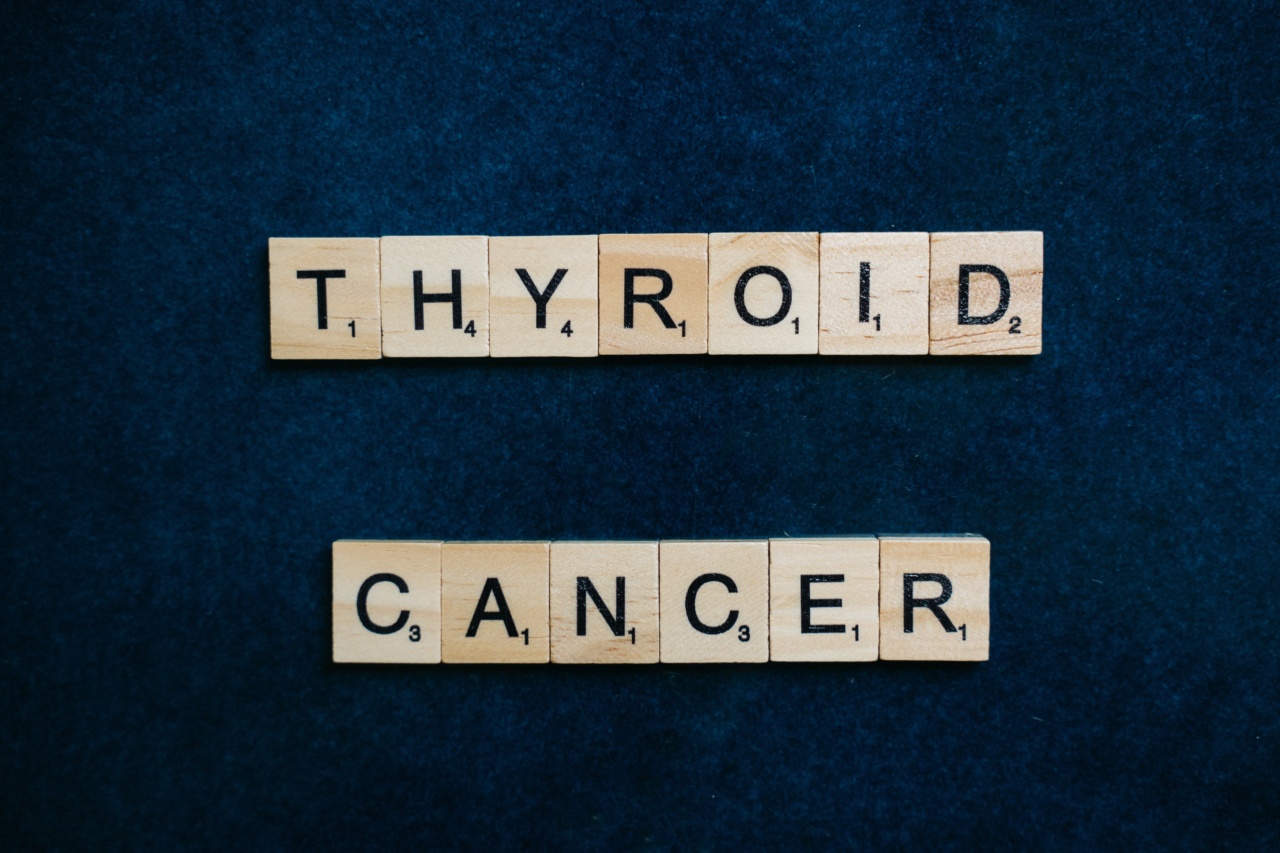Thyroid cancer is a type of cancer that affects the thyroid gland, which is a butterfly-shaped gland located in the front of the neck. It is a relatively rare form of cancer, but it can be serious if not diagnosed and treated early.
Here are some essential facts about thyroid cancer that everyone should know:.
1. The Causes of Thyroid Cancer are not yet Known
Despite being a relatively rare form of cancer, the exact causes of thyroid cancer are not well understood. However, there are some factors that have been linked to an increased risk of developing thyroid cancer. These include:.
- Exposure to high levels of radiation, especially during childhood
- A family history of thyroid cancer
- Certain genetic syndromes, such as familial medullary thyroid cancer
- Being female
- Being over the age of 40
It’s important to note that having one or more of these risk factors does not necessarily mean that you will develop thyroid cancer.
2. Early Detection and Diagnosis is Key
Thyroid cancer can often be detected early through routine screening and regular check-ups. The most common way to detect thyroid cancer is through a thyroid ultrasound, which uses high-frequency sound waves to create images of the thyroid gland.
If thyroid cancer is suspected, a biopsy may be performed to confirm the diagnosis. This involves taking a small sample of tissue from the thyroid gland and examining it under a microscope to look for cancerous cells.
3. Treatment Options for Thyroid Cancer
The treatment options for thyroid cancer depend on the type and stage of cancer, as well as the patient’s overall health. The most common treatment options include:.
- Surgery to remove all or part of the thyroid gland
- Radiation therapy, which uses high-energy radiation to kill cancer cells
- Chemotherapy, which uses drugs to kill cancer cells
In some cases, a combination of these treatments may be used. It’s important to discuss all treatment options with your doctor to determine the best course of action for your individual case.
4. Prognosis for Thyroid Cancer
The prognosis for thyroid cancer varies widely depending on the type and stage of cancer at the time of diagnosis. Generally, the prognosis is better for people who are diagnosed early and receive prompt treatment.
According to the American Cancer Society, the 5-year survival rate for thyroid cancer is approximately 98% for people with localized cancer (meaning the cancer is only in the thyroid gland) and 81% for people with cancer that has spread to nearby lymph nodes or other organs.
Conclusion
Thyroid cancer is a relatively rare form of cancer, but it can be serious if not diagnosed and treated early. Although the causes of thyroid cancer are not yet well understood, there are some risk factors that have been identified.
Detecting and diagnosing thyroid cancer early is key to successful treatment, and there are several treatment options available depending on the type and stage of cancer. Ultimately, the prognosis for thyroid cancer is generally good when detected and treated early.




























